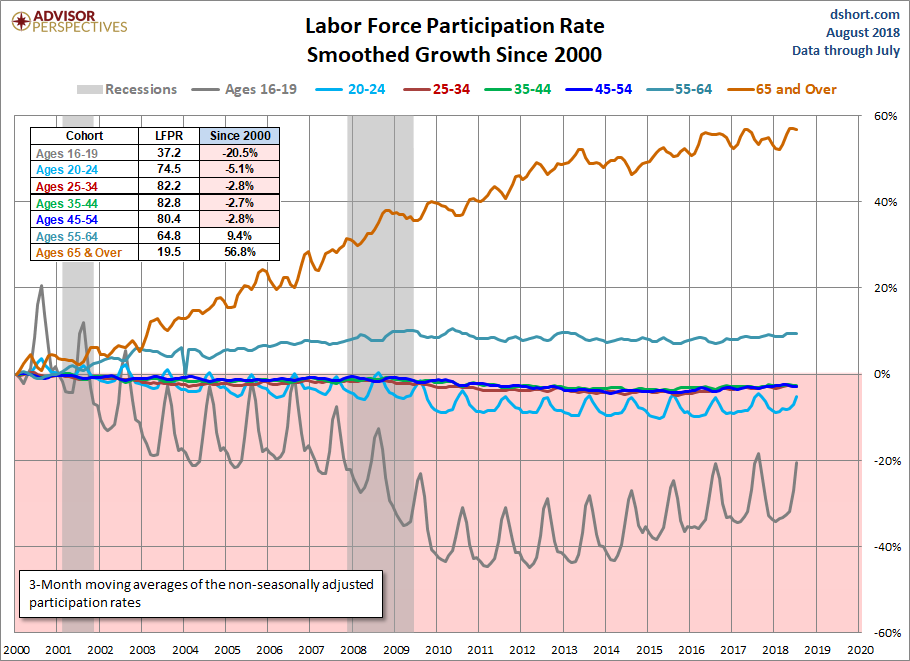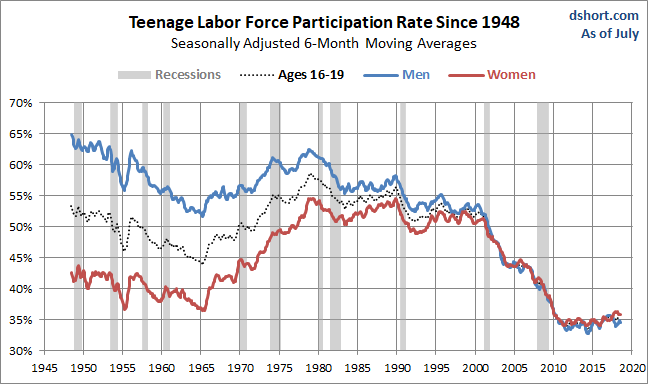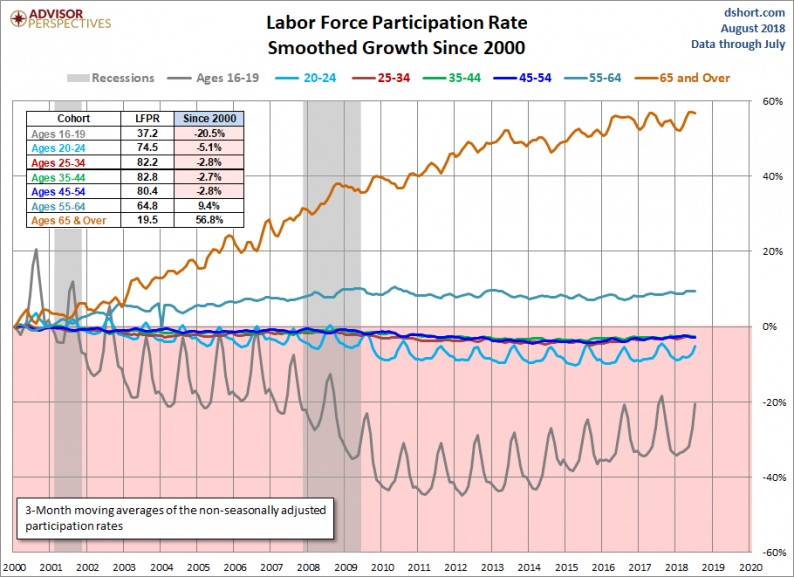In July of 2015, CNN Money featured an article with the optimistic and intriguing title “More American teens are getting jobs. That’s good for everyone.” The article opens with an example of 16-year-old Lauren Miller, who loves her minimum wage job at Hershey Lodge in Pennsylvania, “roasting s’mores and organizing activities for kids.” The article goes on to quote Diane Swonk, chief economist at Mesirow Financial: “The trend is moving in the right direction,” says Swonk. The teenage economy “is certainly something I’m watching more closely” [link].
After reading the article, we revised one of our monthly charts on Labor Force Participation to include the age 16-19 cohort — one we elsewhere combine with the 20-24 year-olds. The first chart below features the three-month moving averages of the non-seasonally adjusted participation rates to better highlight the trends.

Clearly evident in the chart above is the summer skew for both the teenage workforce and, to a lesser extent, the college-age 20-24-year-olds.
Now let’s take a longer look back at the teenage workforce with a snapshot of the complete data series, which the Department of Labor began tracking in 1948. Note that the seasonally adjusted data smooths out the summer spikes.

The general trend reversal around 1965 was to some extent a result of the Title VII of the Civil Rights Act of 1964, which prohibits discrimination by race, color, religion, sex, or national origin. Here is the same chart with a gender breakdown.

We see in the chart above that it was not until the early years of the 21st century when the gender spread seems to have disappeared. However, when we zoom in on the teen genders since 2000, we see that there remains a small but statically consistent spread. The next chart shows a zoomed-in view since 2000 to illustrate this small spread.













Leave A Comment